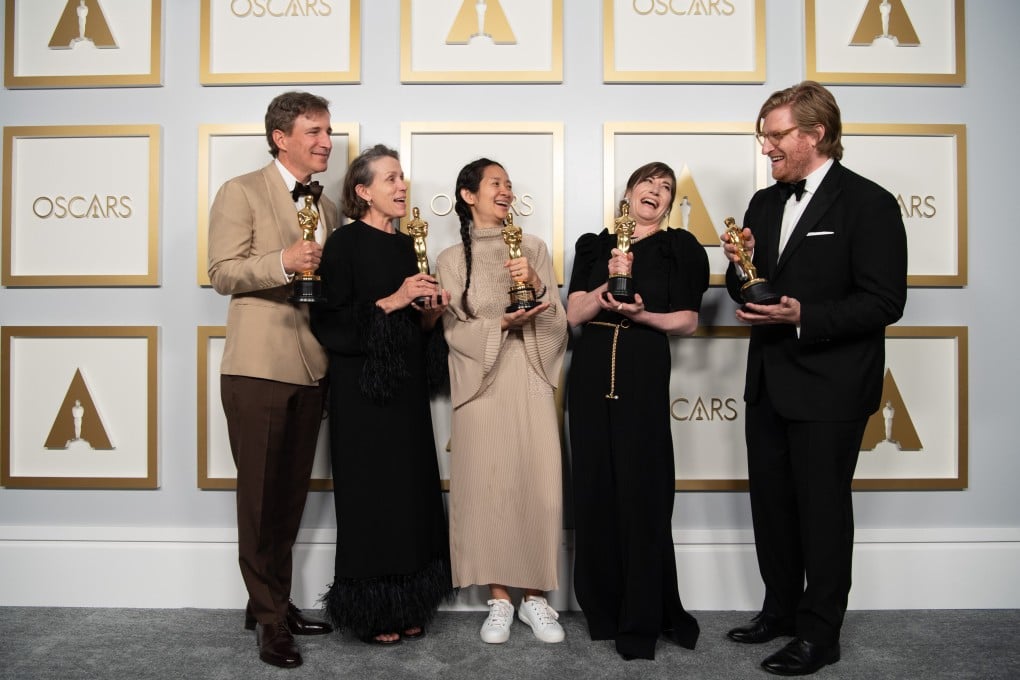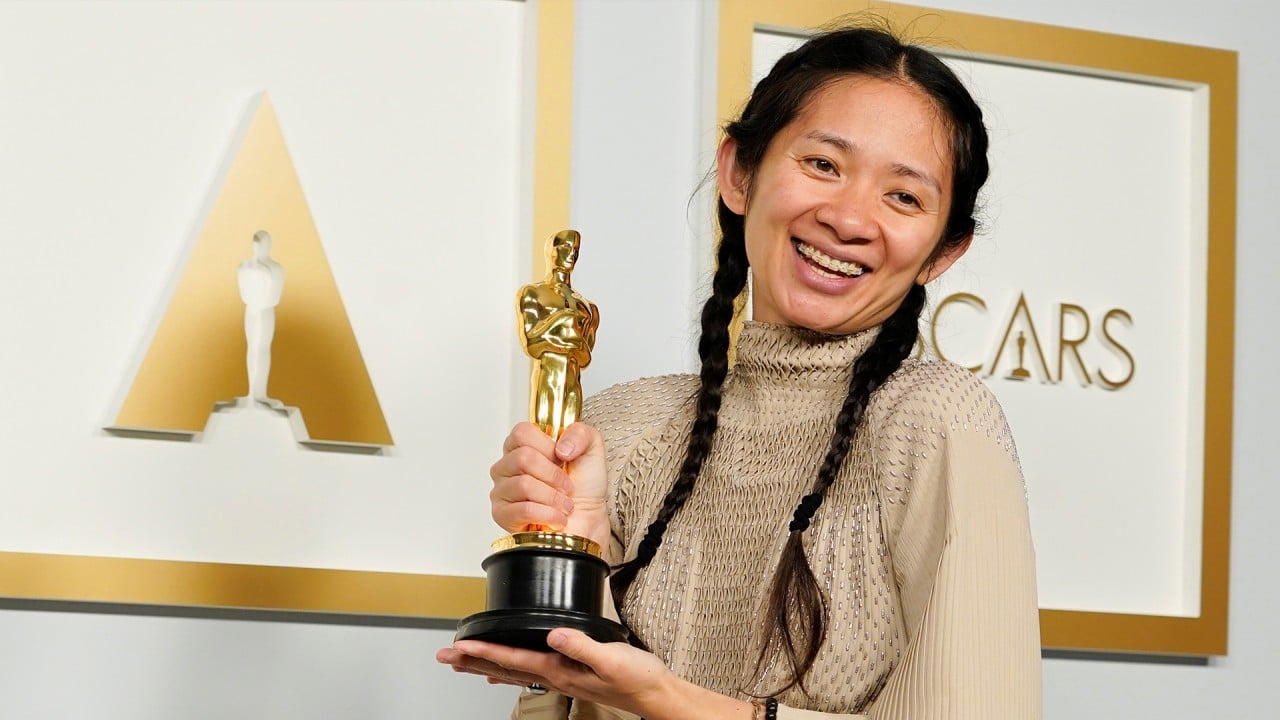Lunar | Academy Awards’ Best Director Chloé Zhao: why her Oscars outfit was a feminist moment
- Chloé Zhao’s 2021 Oscar moment was notable for her decision to not play the Hollywood game when it came to red-carpet dressing

It was a development largely attributed to the rise of the celebrity stylist and the eagerness of fashion designers to leverage the brand exposure they gained by having one of their pieces worn by a star. But it must also be recognised that this “new normal” of celebrities decked out in catwalk-level couture at movie and music industry awards shows gained traction during the 90s backlash against second-wave feminism.
This backlash, a negative reaction to political and socio-economic gains made by the women’s movement in preceding decades, manifested in a number of ways – including in a new wave of unrealistic standards around female appearance.
Which is why it can be argued that Chloé Zhao’s 2021 Oscar outfit was as much a feminist moment as was her historic win.

